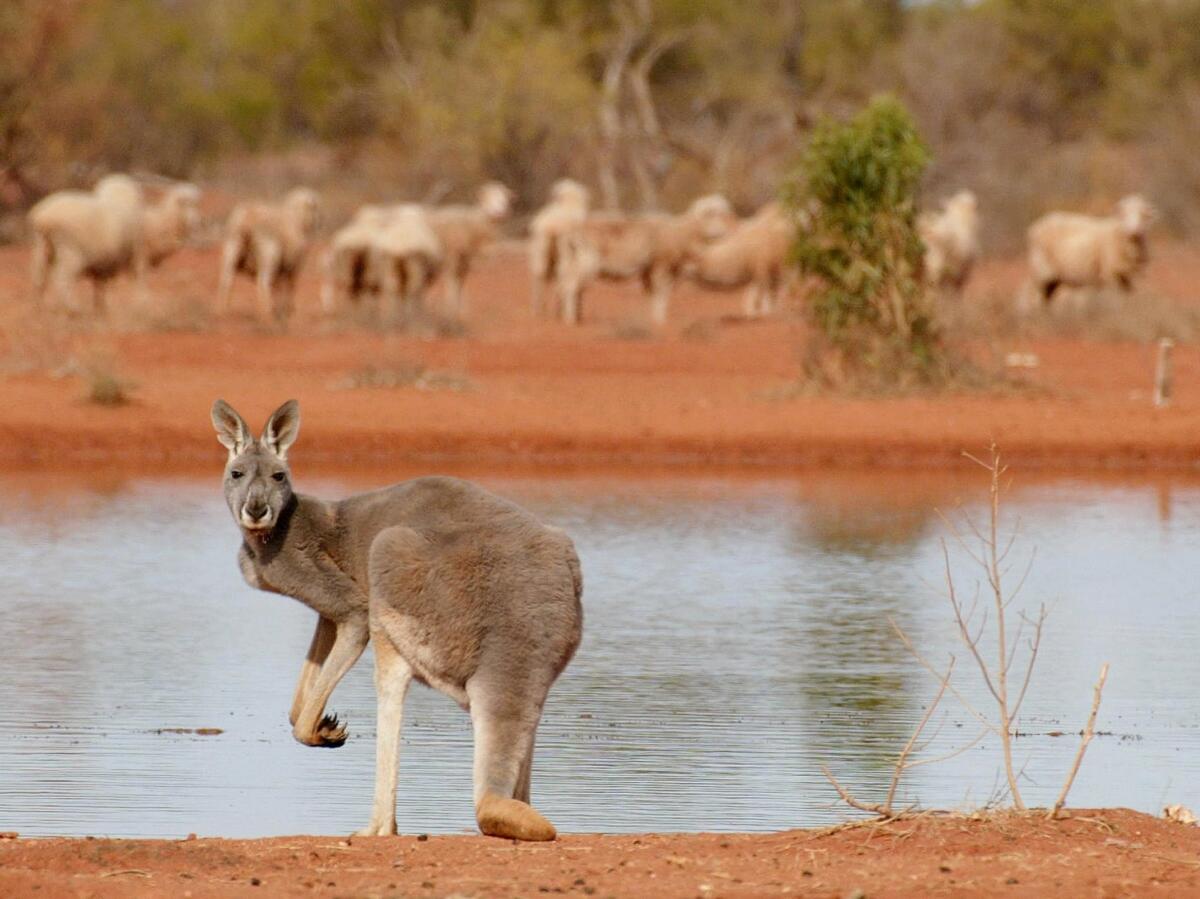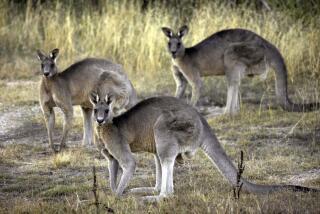Australian government efforts to lift ban on kangaroo products under scrutiny

A kangaroo and sheep standing next to a rare waterhole on a station near White Cliffs, Australia, an outback area hit badly by drought.
Reporting from Sacramento — An animal rights activist has filed a complaint with the state ethics agency against the Australian government, alleging that it did not properly register its lobbying activities as it seeks to eliminate California’s ban on kangaroo products.
The decades-old ban, which has been suspended since 2007, is set to go back into effect at the beginning of next year, affecting the availability of soccer cleats and gloves made from kangaroo leather.
------------
FOR THE RECORD: A previous version of this article said that a website advocating for the kangaroo products ban was launched by animal rights activists. It is run by a coalition of scientists and researchers.
------------
While the Australian government vocally opposes the import ban, it hasn’t registered with the state as a lobbyist employer. But a business group, the Kangaroo Industries Assn. of Australia, hired the law firm Manatt, Phelps & Phillips in May and paid them nearly $45,000 so far this year.
Lauren Ornelas, a Sonoma County animal activist who has long been involved in backing the kangaroo ban, filed a complaint with the Fair Political Practices Commission on Friday alleging the Australian government is providing the financial backing for the lobbyist.
Her complaint cites a document from the Australian Department of Agriculture that states the government paid approximately $100,000 to the industry group for the purposes of hiring Manatt to lobby against the kangaroo ban.
Because the government appears to have spent more than $5,000 to influence the Legislature, Ornelas said it should have registered as a lobbyist employer.
The Australian government, and a lobbyist for the Kangaroo Industries Assn. of Australia, did not immediately return calls for comment Friday.
The kangaroo products ban is the subject of intense argument on both sides of the issue--and recent legislative intrigue.
The Australian government, along with companies looking to roll back the prohibition, argues that it does not differentiate between species of kangaroos. While some types of the animal remain protected, others are not, and the government annually culls the population of kangaroos that are particularly large in number.
“The Australian government wishes to grow our strong economic ties by removing unnecessary trade barriers that are not grounded on science. A temporary solution has been in place for years and it is now time to adopt a permanent resolution,” said Kim Beazley, Australian ambassador to the U.S., in a statement last May.
But animal rights activists are mounting their own effort to keep the ban in place. They are promoting a website, launched by a coalition of scientists and researchers, which argues that the commercial killing of kangaroos is unsustainable and cruel.
With the deadline to introduce new bills far past, advocates are bracing for last-minute legislative maneuvering to lift the ban.
“We’ve just seen it come up time and time again,” said Ornelas. “It just seems unlikely that they’re not going to try to do something.”
Follow @melmason for more on California government and politics.
More to Read
Sign up for Essential California
The most important California stories and recommendations in your inbox every morning.
You may occasionally receive promotional content from the Los Angeles Times.











